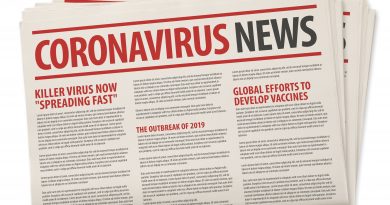The vital importance of data (II)
Data are at the heart of a recent episode of Fighting Coronavirus, a weekly podcast hosted by renowned American science author Steven Johnson. In this episode, Johnson speaks with Samuel Scarpino. It makes for good listening.
Scarpino is an assistant professor at Northeastern University, in charge of the Emergent Epidemic Lab. His expertise is in the area of complex systems and network science. While talking about his field, he emphasizes the similarities in the dynamics and propagation of such seemingly different systems as forest fires, internet memes and pandemics. But we employ different means of measurement for each of these systems. We know exactly when, where and how an Internet storm dies off. On the other hand, viral outbreaks that fail to take off to pandemic scale tend to go unnoticed.
COVID-19 is not the first, but probably more like the 40,000th virus trying to make its way through the global population. We could learn from these tens of thousands of failed attempts if we better see them.
Back in January, Scarpino started with a handful of volunteers around the world to collect data on the spread of the new virus. Via open source archives the data were made publicly available. Essentially, Scarpino’s network jumped in where the World Health Organization (WHO) or the American Centers for Disease Control and Prevention (CDC) were hesitant. Largely political considerations hampered both public organizations. Their out-of-date software tools and data infrastructure did not help much neither.
In Scarpino’s view, public health surveillance in the US was effective in the month of February. Too much attention was then given to China as a source, however. In March, the system failed therefore to detect new cases coming in from Europe, notably Italy.
Asked for his expectations for managing future pandemic crises, Scarpino sees improved surveillance, forecasting and coordination. This should lead to better and faster decision making. In the case of an outbreak, smart lockdowns should suffice. They would only involve a limited number of measures, such as avoiding mass gatherings, or wearing a mask. Meanwhile, society needs a makeover too, he adds. Today, a large fraction of the population is unnecessarily put at risk. Adequate support should be provided to those individuals in need.
As Steven Johnson concludes: we have our work cut out for us.
(rvdk)


Pingback: The vital importance of data (I) - The Corona Diaries